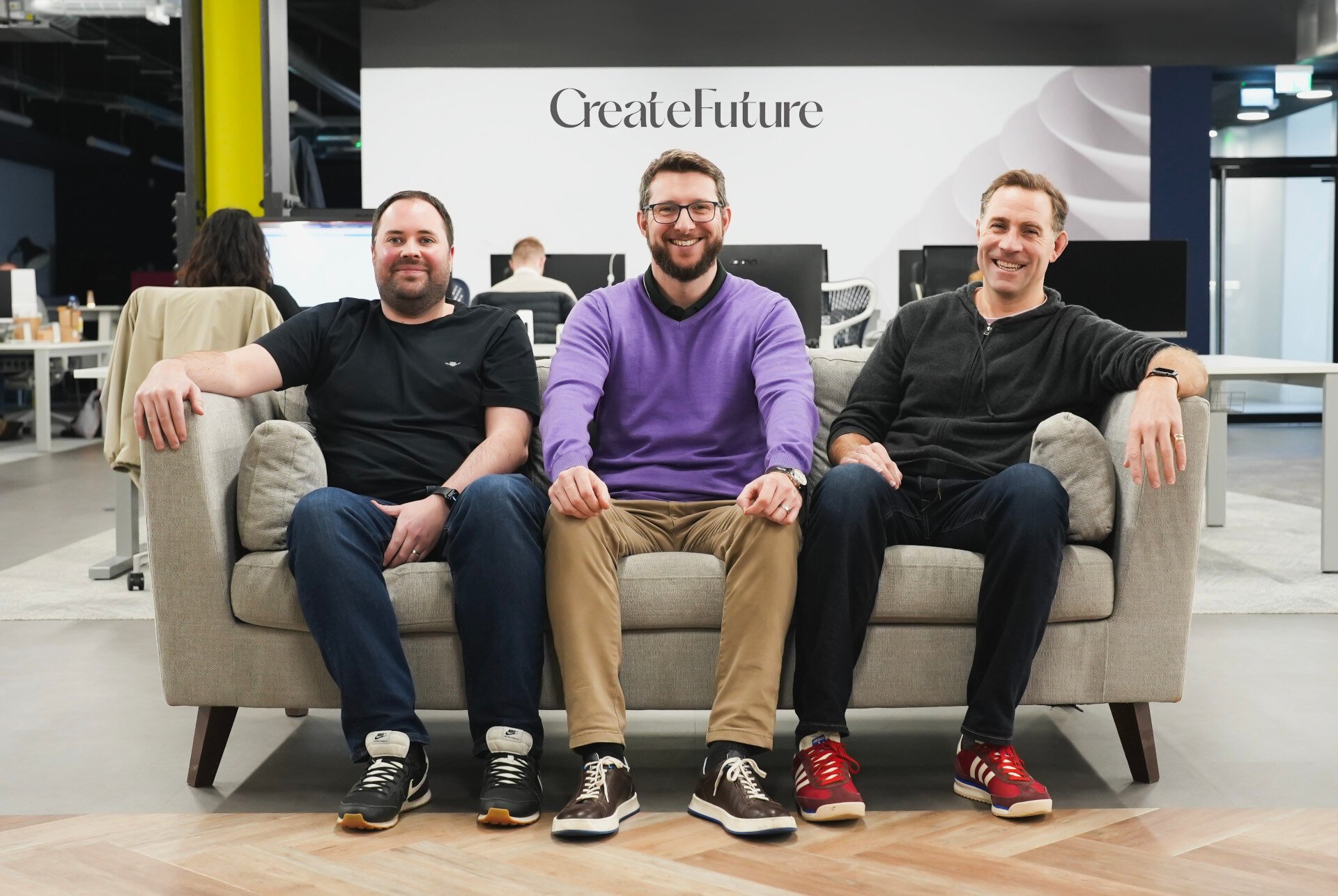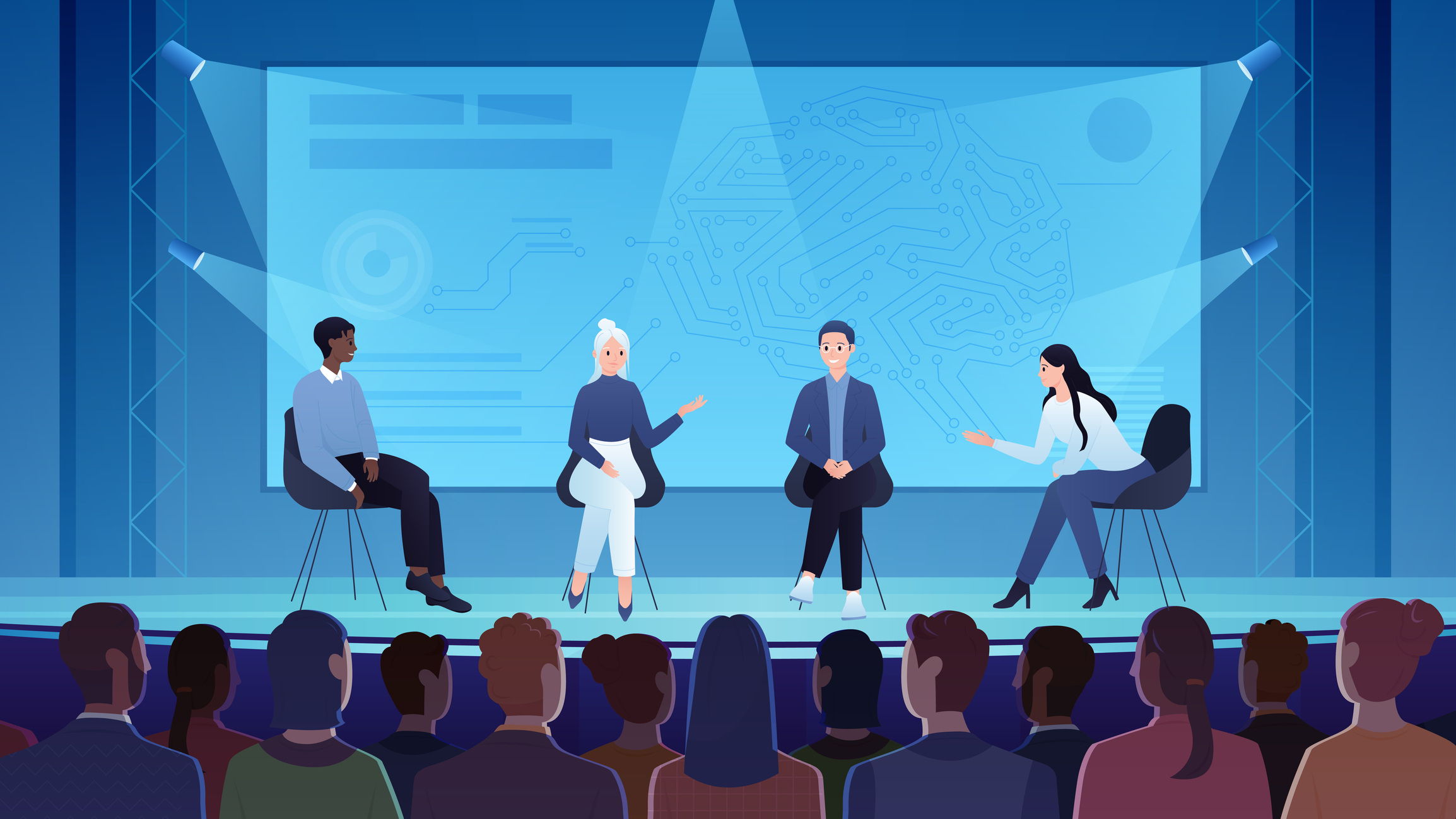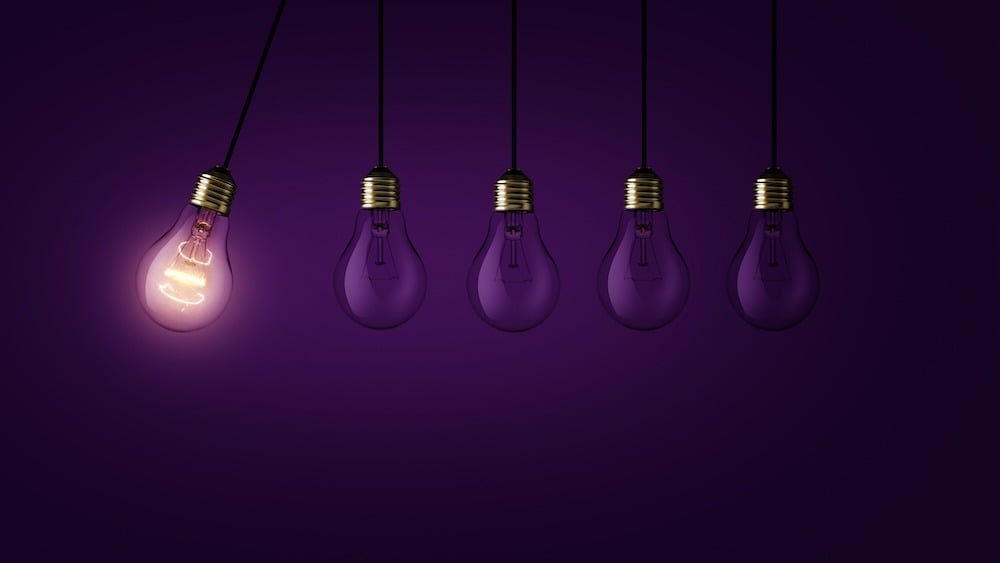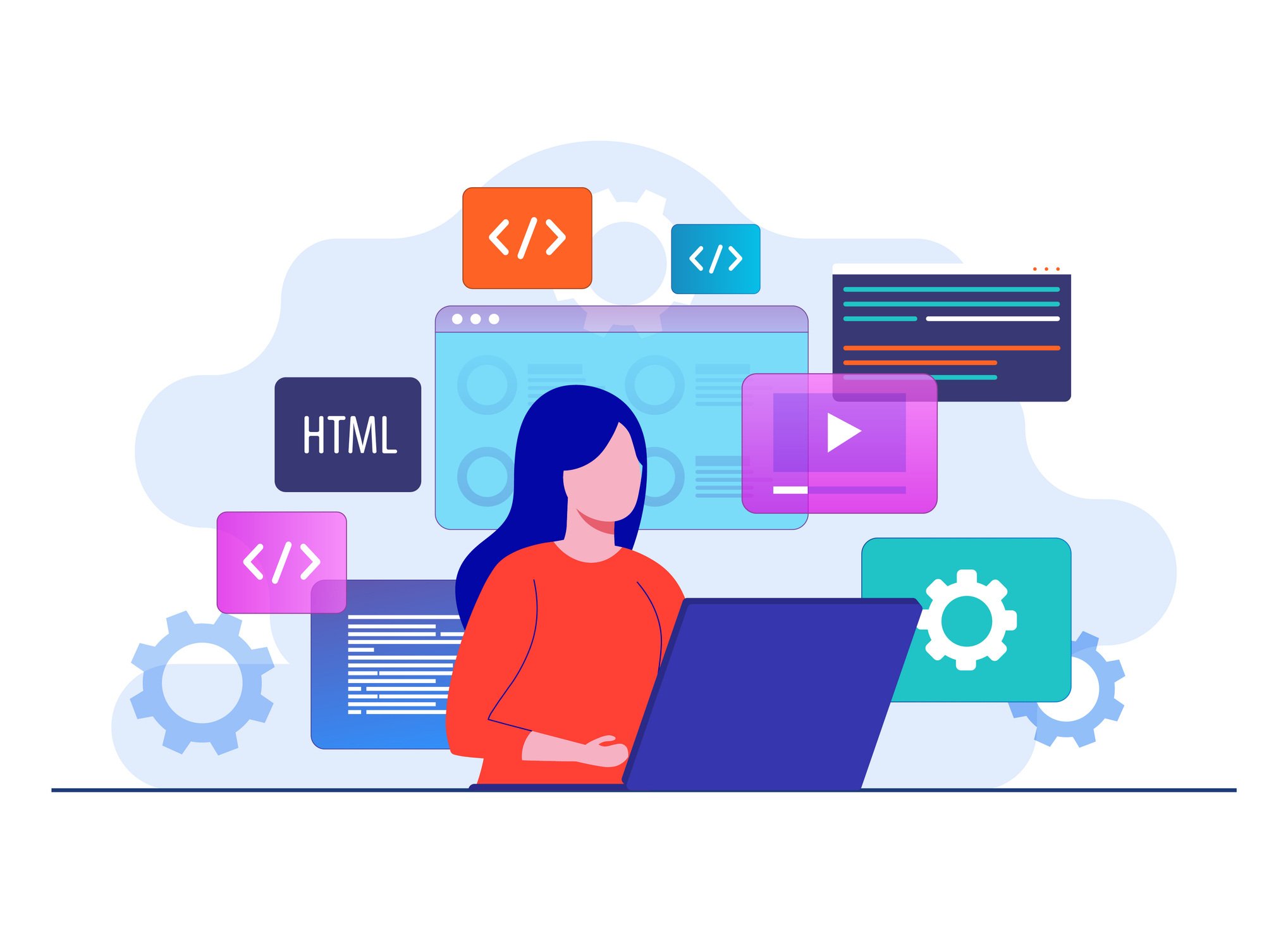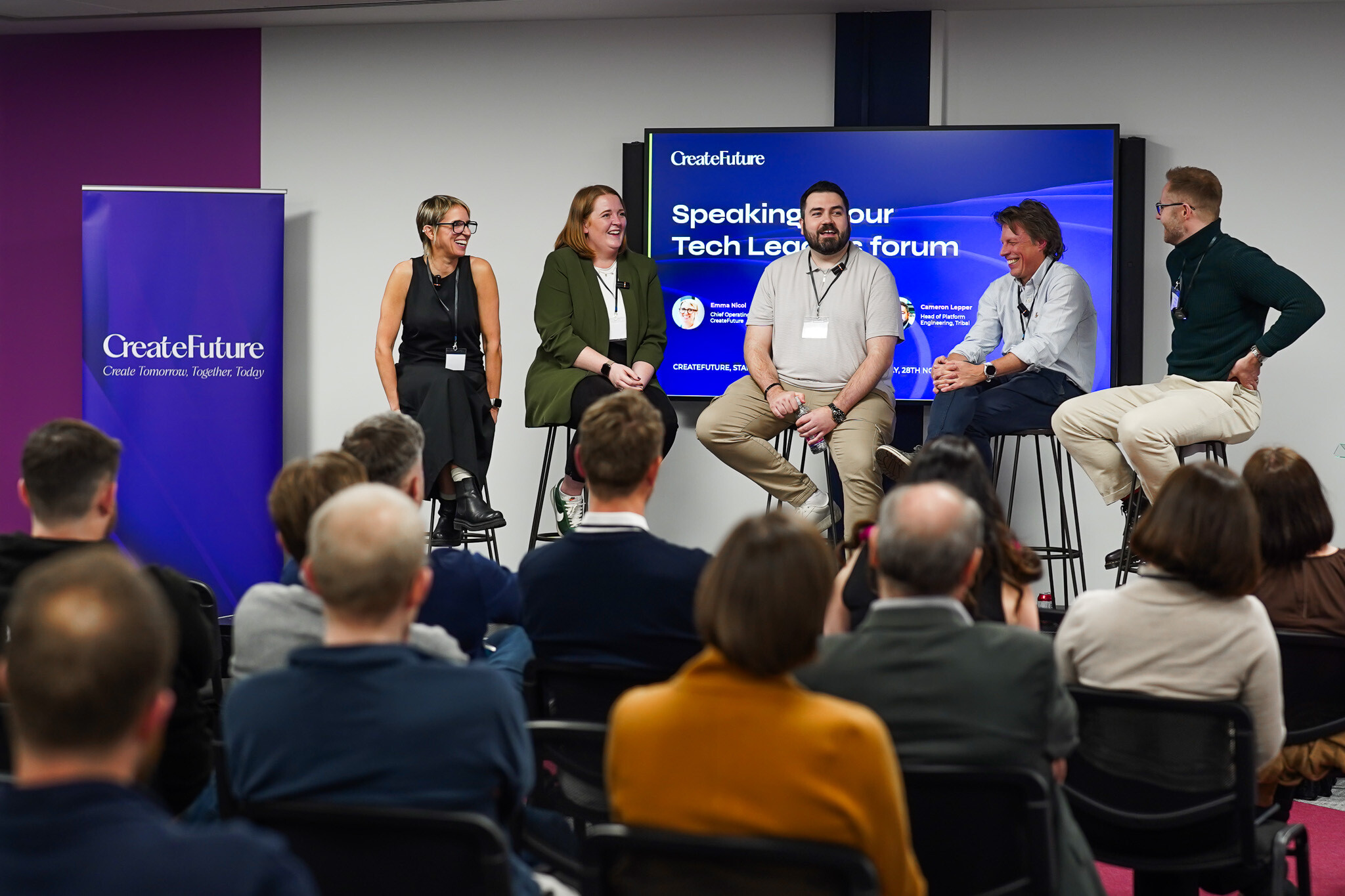
Events
Leadership
Take a look
Empathy and Adaptability: Key Takeaways from CreateFuture’s Tech Leaders Forum

Events
Financial Services
Take a look
Smarter Finance: Assessing the promise and potential pitfalls of AI in Financial Services
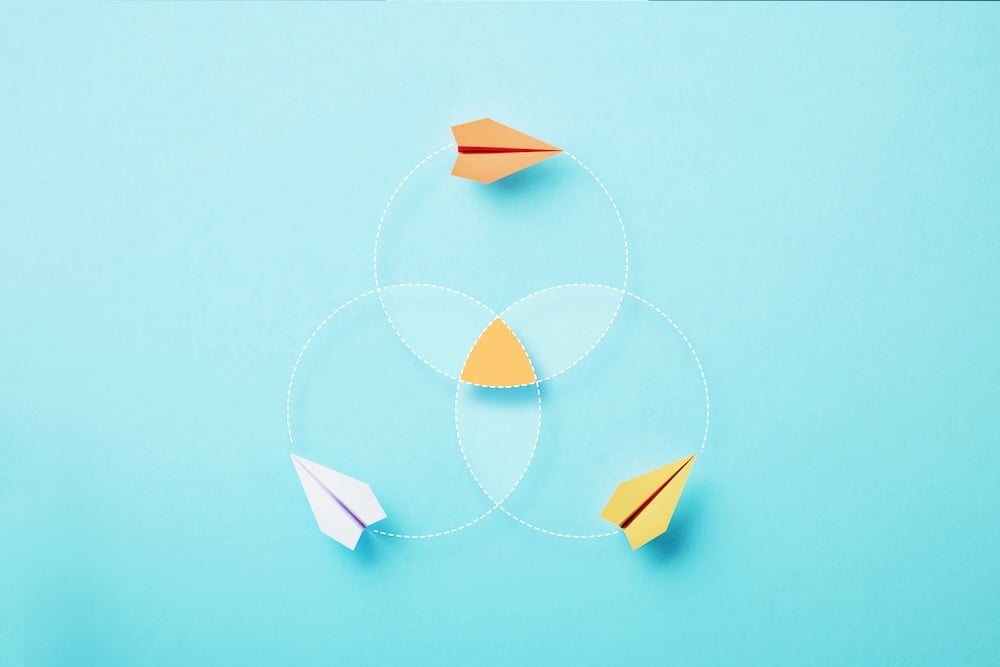
Innovation
Strategy
Take a look
The Innovation Sweet Spot: Aligning Proposition, Technology, and Experience
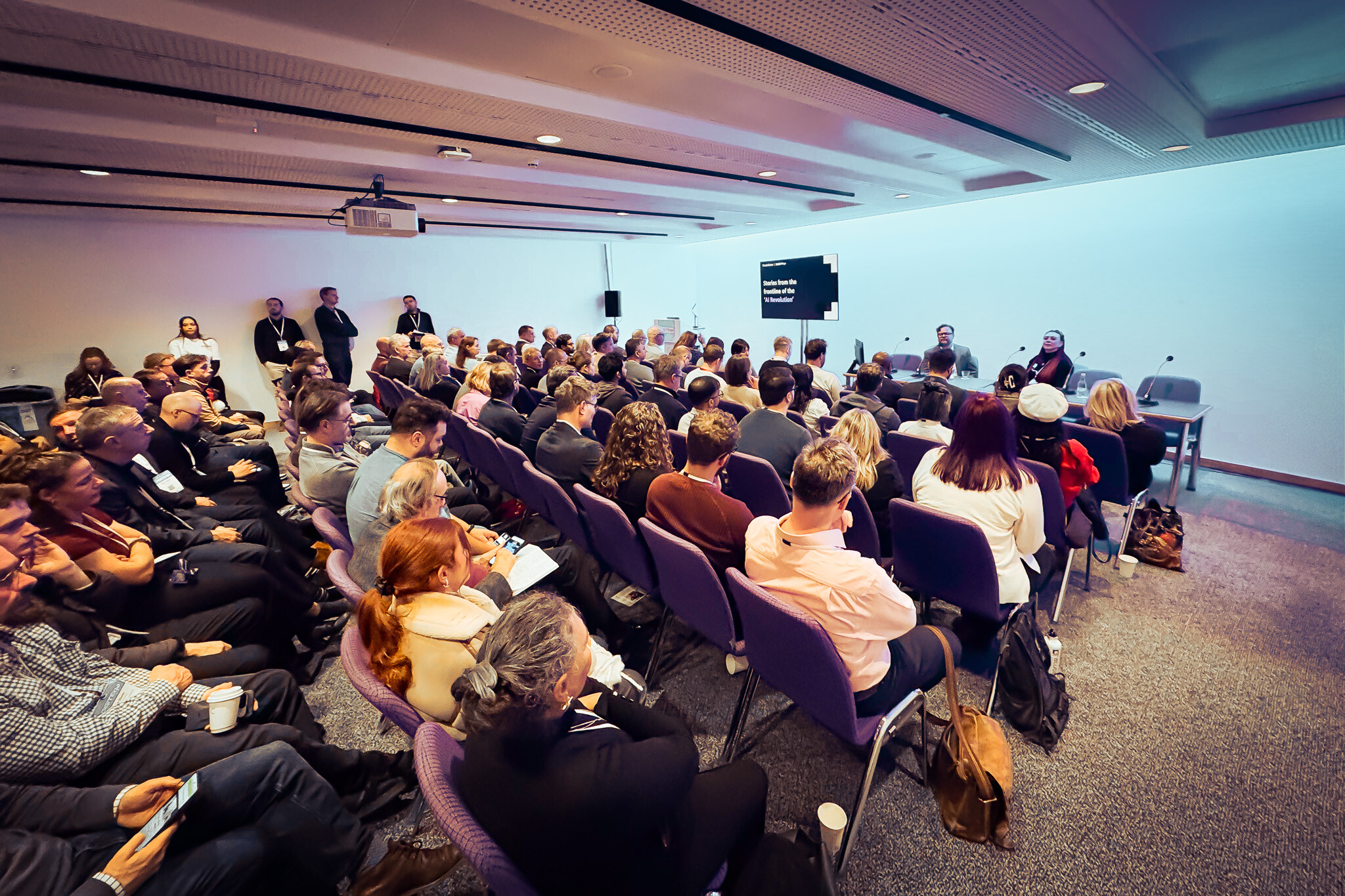
Events
Artificial Intelligence
Take a look
DIGIT Expo: Has the UK’s own ‘AI Revolution’ been fully ignited?
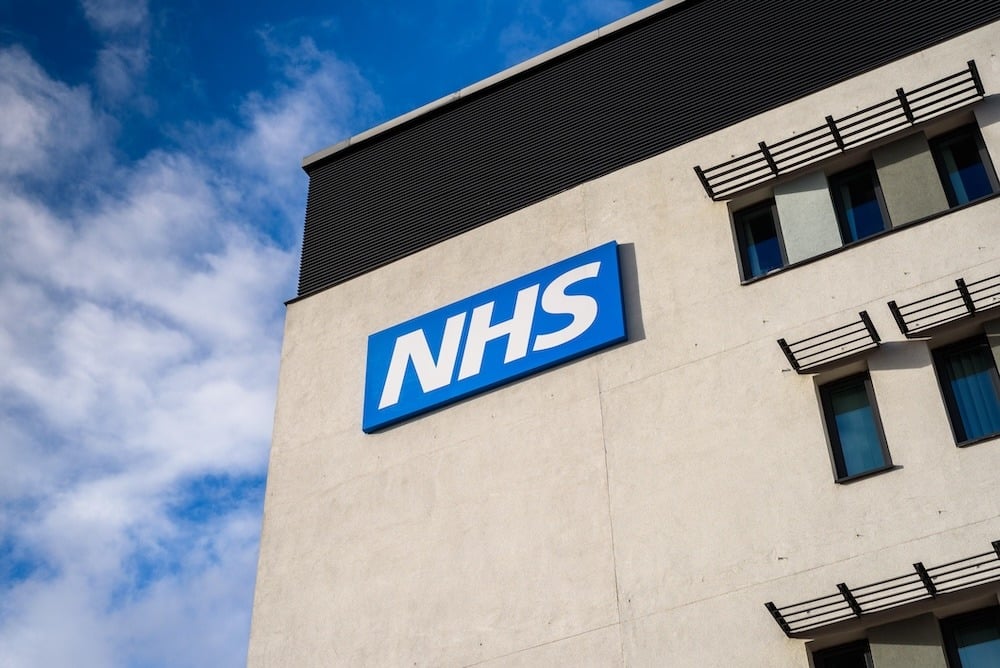
Artificial Intelligence
Take a look
.png?width=741&height=106&name=CF_Master_Dark%20(1).png)
